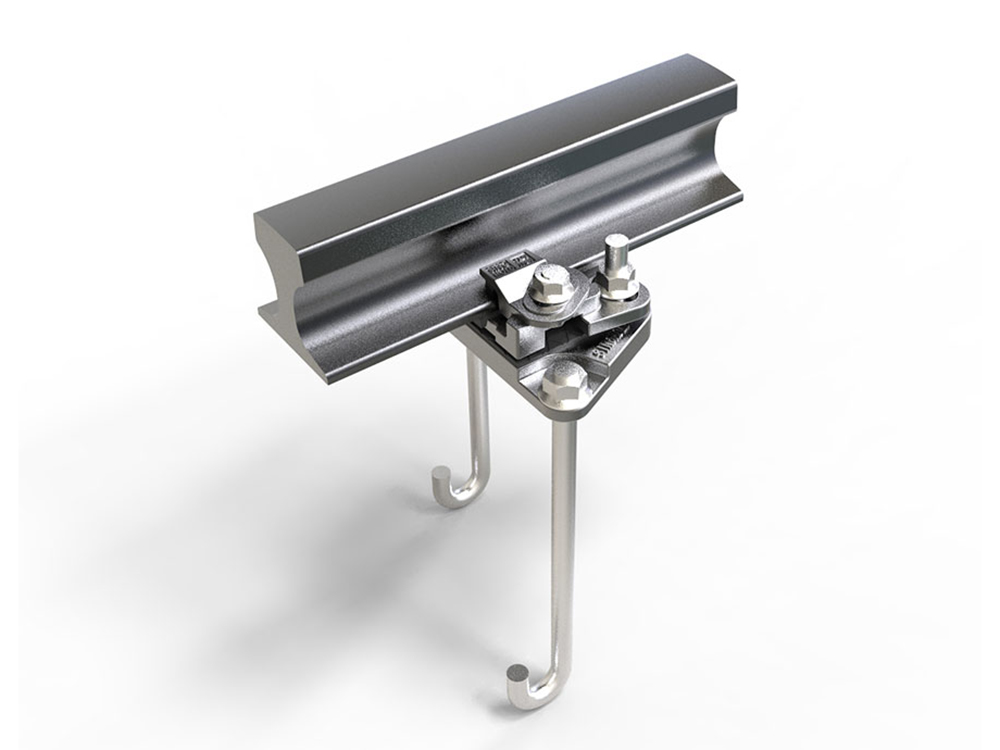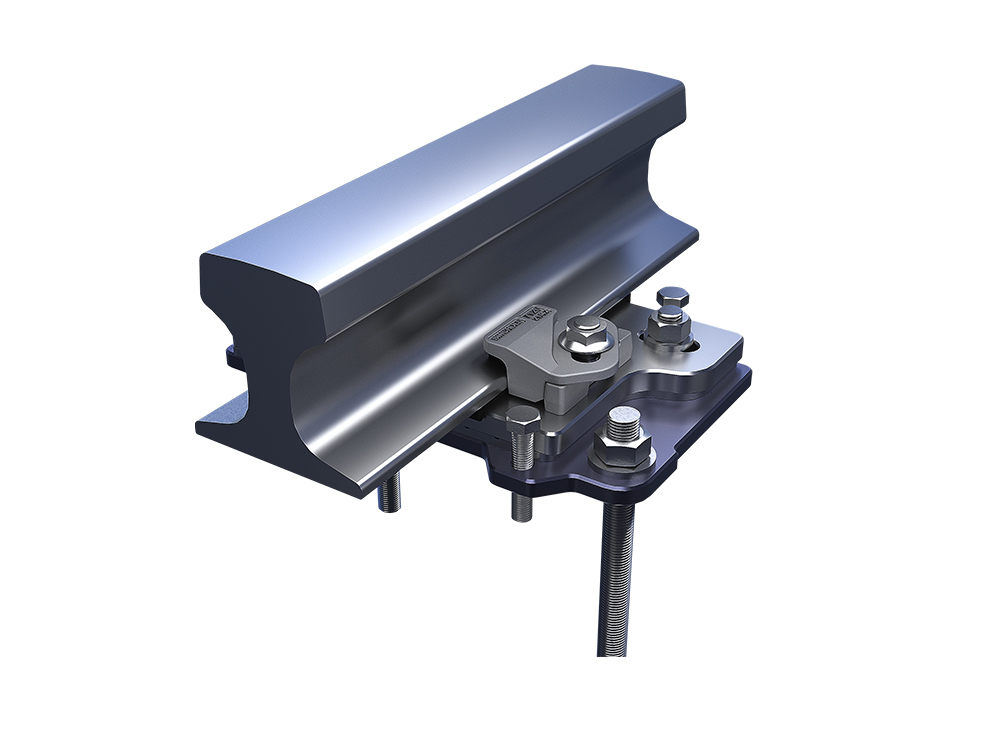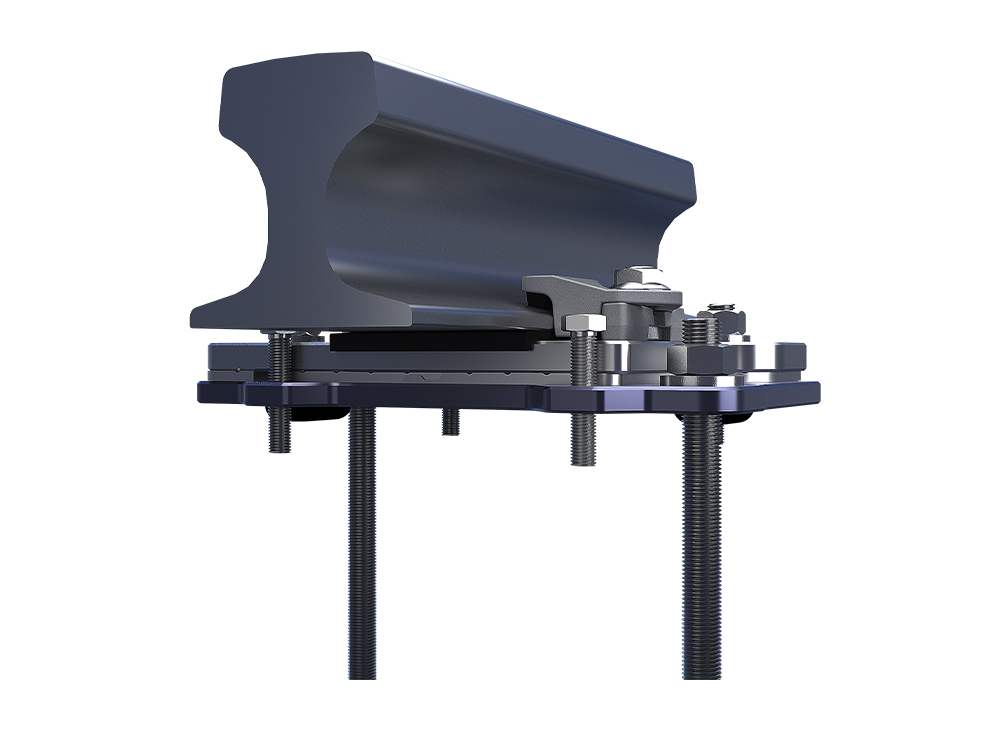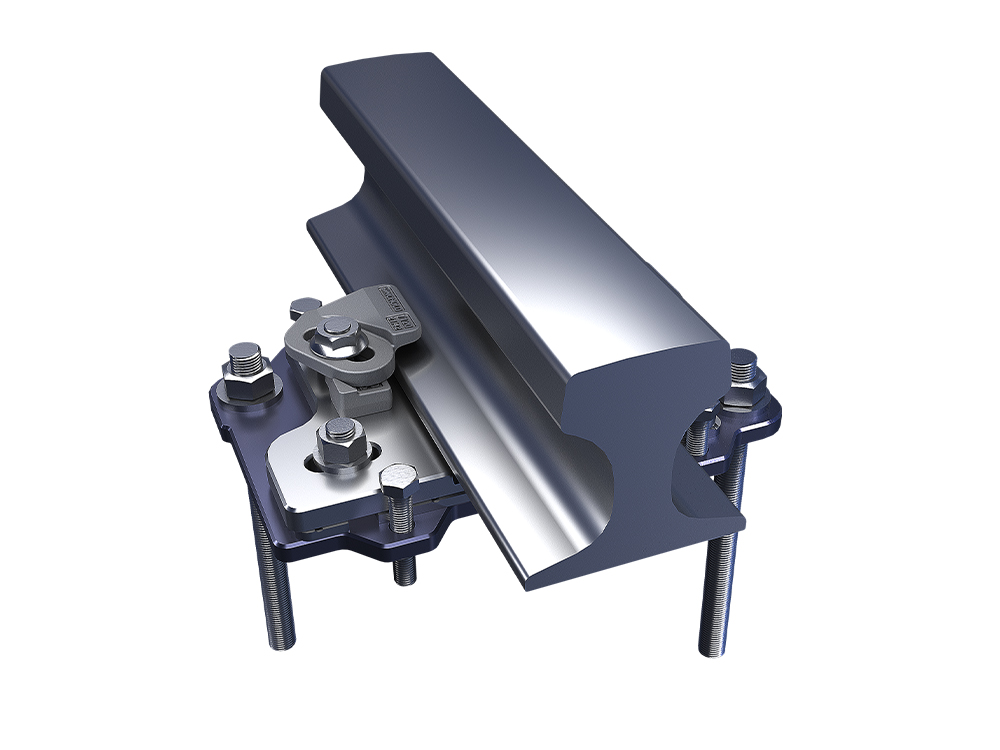Settlement-Resistant Track System; Subsidence-Resistant System For Crane Runway
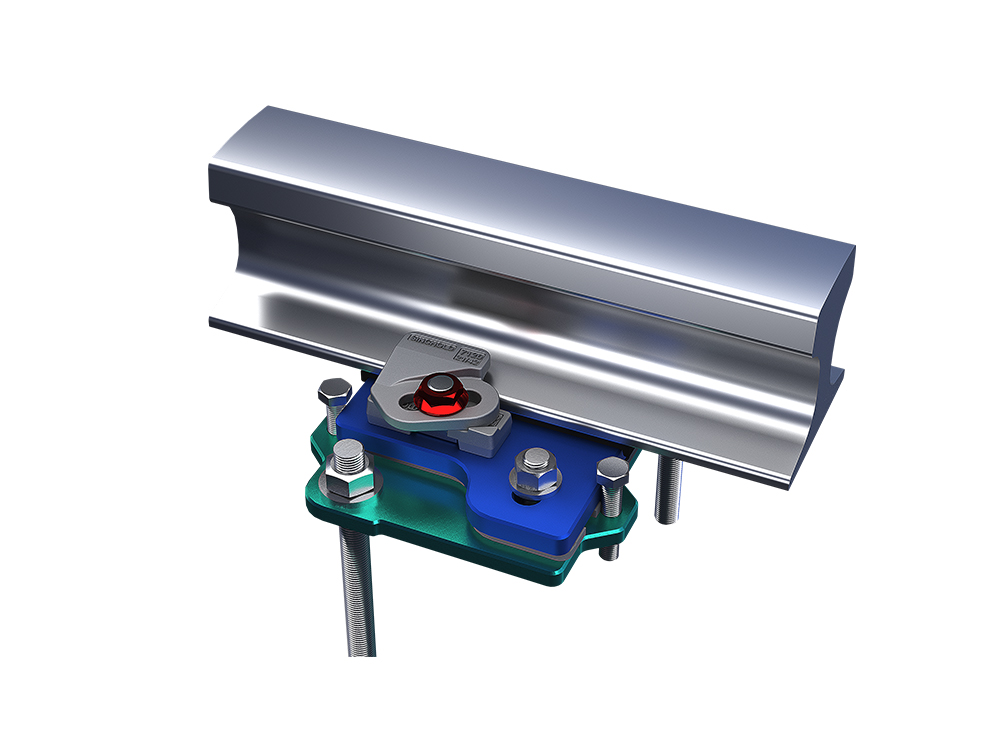
● Concrete Foundation: Serves as the primary support structure for the track system, providing strength and stability to the rail infrastructure.
● Rail: The core component of the track system, designed to carry and distribute train loads while guiding wheel movement.
● Embedded Parts: Components such as embedded casings and bolts, which securely anchor the track system to the concrete foundation.
● Adjustable Components: Includes adjustable rubber pads and locking pads, enabling precise elevation adjustments to compensate for settlement and ensure compliance with design specifications.
● Accessories: Upper/lower clamp, clamp bolts, and other fixtures that provide lateral restraint and secure the assembly.
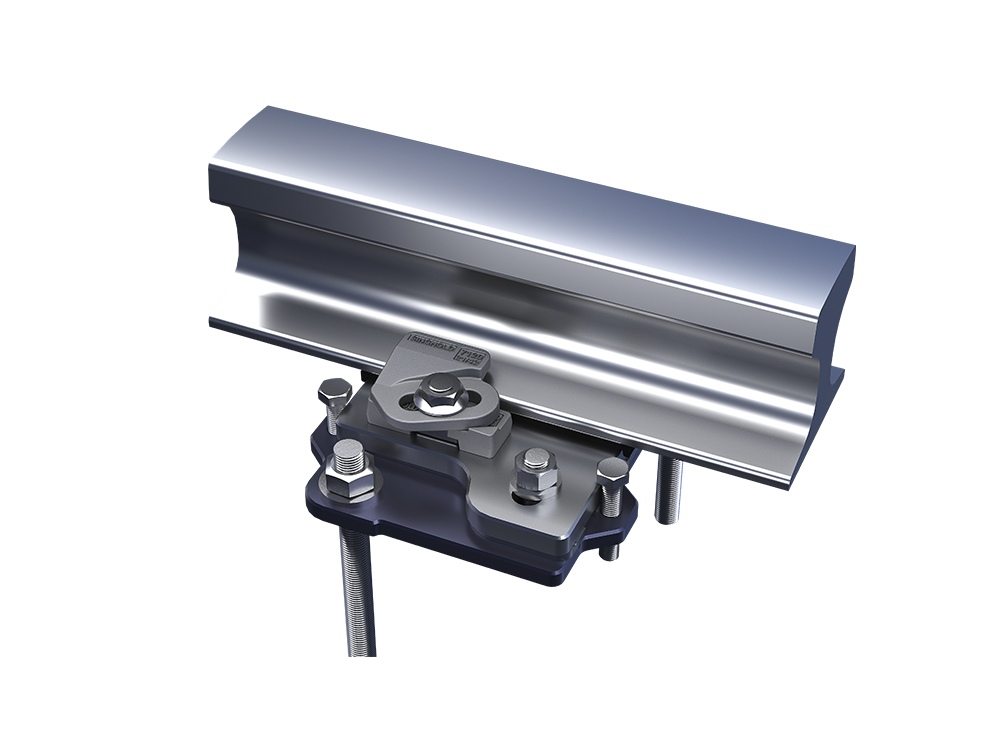
● High Strength: The Settlement Resistant Track System (SRTS) is constructed from high-strength materials, ensuring exceptional durability and the ability to withstand heavy loads and pressures while maintaining track stability and safety.
● Corrosion Resistance: These systems incorporate corrosion-resistant coatings or alloys to effectively resist oxidation, chemical exposure, and environmental degradation, significantly extending the system’s service life.
● Waterproof & Moisture-Proof: Designed with excellent waterproof and moisture-proof properties, the system prevents infiltration from rainwater, humidity, and other environmental factors, safeguarding long-term stability.
● Long Service Life: High-quality materials and rigorous manufacturing standards ensure minimal maintenance requirements and reduced replacement costs over the system’s lifespan.
● Adjustability: Advanced systems feature integrated height-adjustable mechanisms (e.g., modular rubber pads or locking pads), allowing real-time elevation adjustments to compensate for subgrade settlement without disassembling the track. This resolves issues like uneven alignment or localized depressions, ensuring compliance with safety and operational standards.
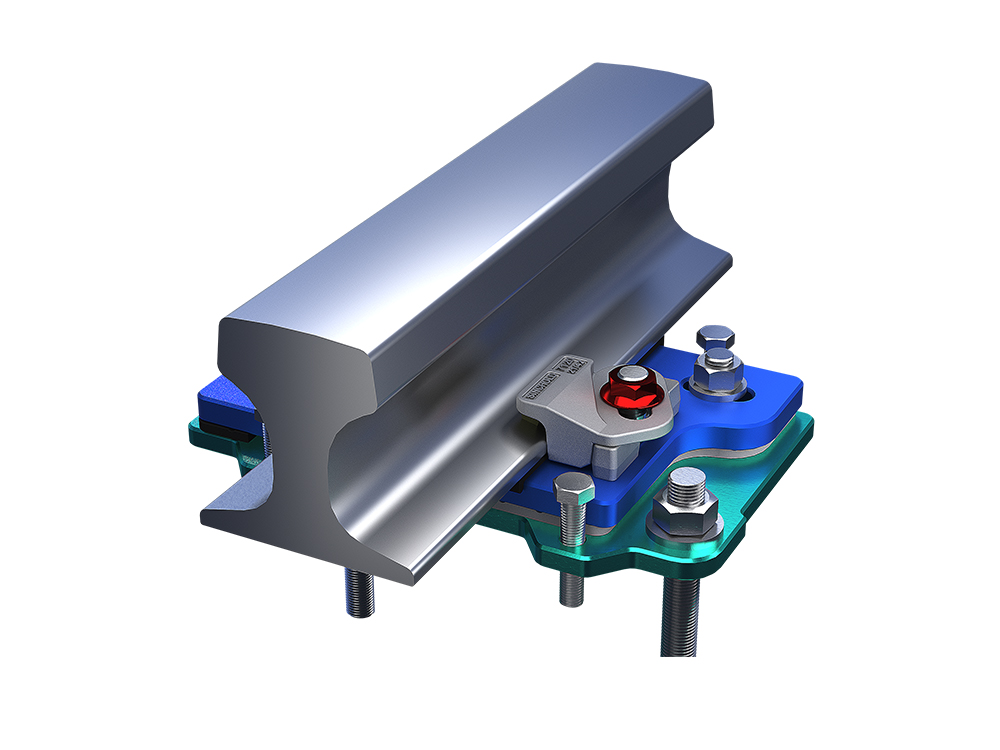
The working principle of the SRTS is mainly based on its unique adjustment mechanism. When the track foundation settles, the system can fine-tune the track by adjusting components to compensate for the settlement and restore the rail level. This adjustment mechanism is usually highly flexible and accurate, ensuring that the track system remains flat and stable after settlement.


